A Resiliência de um Povo que Dança
On the International Day of the World’s Indigenous Peoples, the culture and ancestry of the Kariña tribe who keep their identity alive.
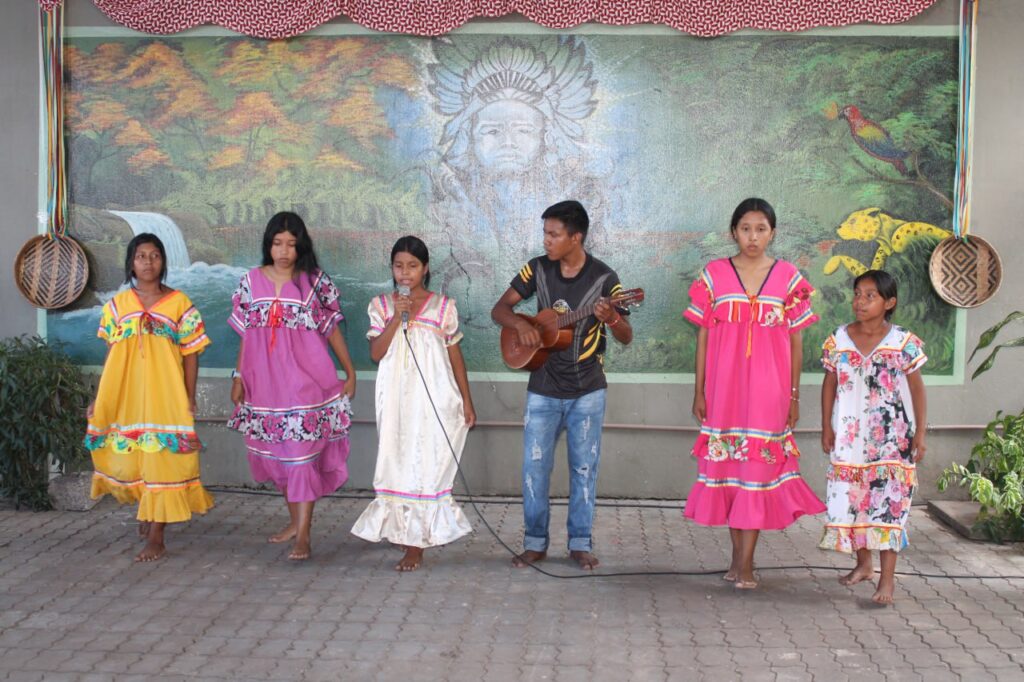
“Dance is a basic element for our people; it is through this that we identify as Kariña” affirms the matriarch Diolimar. With these words, one of the deepest traits of this culture is revealed, intimately connected to their cosmogony – according to which it is said that it is through dance that the world had its origin.
And it is that movement that rocks, while at the same time, anchors the culture of the Kariña people, who from an early age, introduces their children to the Mare-Mare, an ancestral dance which celebrates life, the cycles of nature, and the tie between the ancestors and the current generations. The dance, taught to the young people, has become a path for keeping this inheritance alive: on learning the steps, the songs, the playing of the instruments, and the meaning of the costumes, they take on the role of guardians and transmitters of the Kariña legacy.
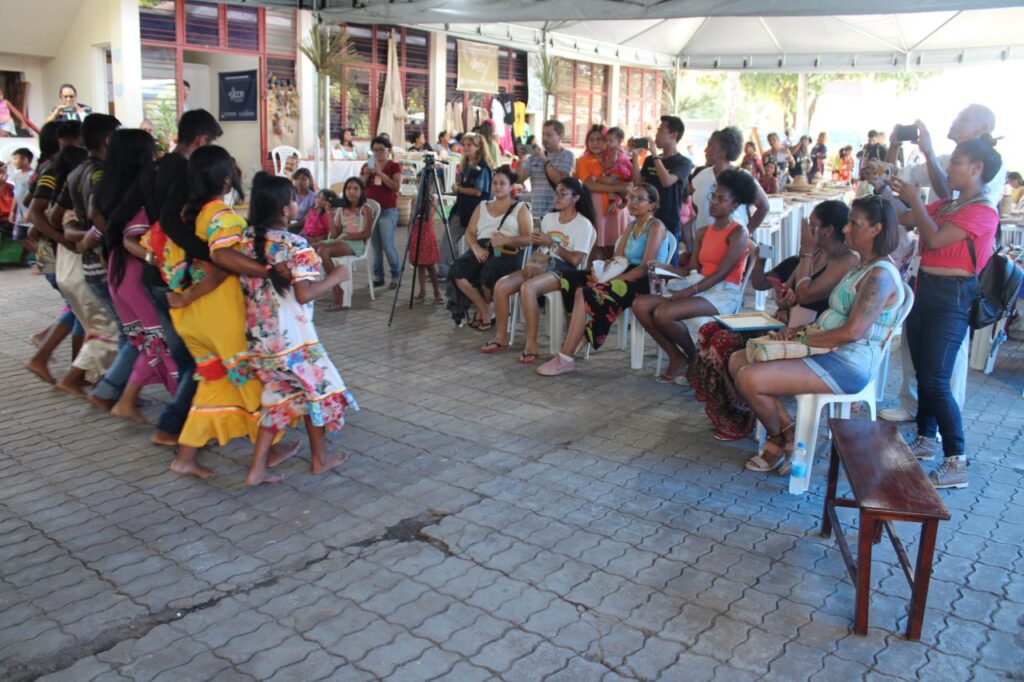
Being Kariña today, affirms Diolimar, “is to have a cultural and ethnic identity”, and more than that, “it is preserving and self-determining our culture.” That self-determination she’s referring to is an essential right of indigenous peoples, and through it, in a free and autonomous fashion, they define how they wish to live and express their culture. It is a conscious choice that reveals the resilience for keeping an ancestral inheritance alive in the face of the challenges of this present time.
This reflection acquires even greater relevance on the International Day of the World’s Indigenous Peoples, celebrated on August 9, a date instituted to reinforce the importance of preserving original cultures and for encouraging becoming aware of their rights. The date reminds us that cultural diversity and traditional knowledge are a valuable patrimony of humanity, the continuation of which depends on the respect, the appreciation, and the protection of the peoples that keep them alive.
The Essence and Culture of the Kariña People
The Kariña are a people originating in the northern region of South America, having a historical presence in Venezuela, Guiana, and Surinam. Their culture is marked by profound artistic and spiritual manifestations. Among them, handicrafts with the production of nets (chinchorros), baskets, and utensils produced with natural fibers, such as the buriti palm (moriche), are symbols both of usefulness and of tradition.
Music and dance – especially the Mare-Mare – mark the celebrations and strengthen community ties. Bamboo flutes, drums and maracas encompass both the festivities and the rituals, such as the Akaatompo, the Bomankaano, and the Bepeekotono, ceremonies that honor the dead and connect the generations.
The Kariña language, although endangered, is a pillar of their identity. Its preservation is a challenge, but also a priority for those who understand that losing the language is to lose an essential part of the soul of a people.
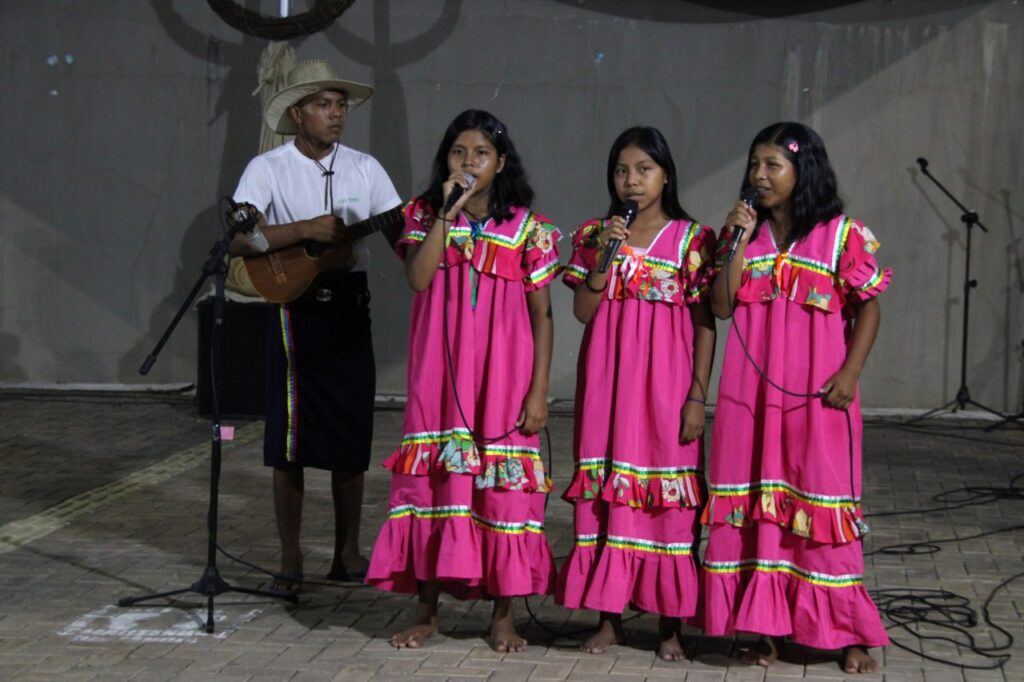
The Voice of the Young People
Deilimar, a young Kariña, emphasizes the importance of the International Day of the World’s Indigenous Peoples as a fundamental moment for reaffirming the rights of the original peoples. According to her, in spite of the advances in the visibility of those causes since the creation of the date, youths face challenges for expressing their identity, especially outside of the community. Among those challenges, she points out “the lack of a physical space for the Kariña community, the valuing of the mother tongue, and the need for an intercultural education that will recognize and fortify their culture.” Besides that, Deilimar reiterates that “access to rights such as the demarcation of lands, health, and education are still essential questions for the Kariña people.”
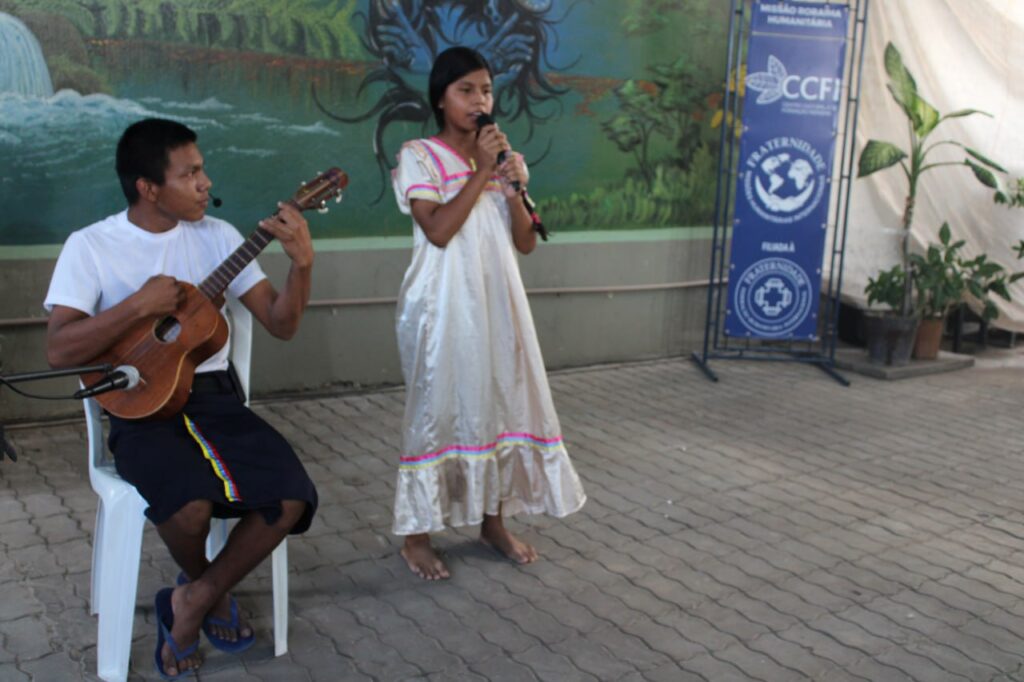
That autonomy guarantees that decisions on the cultural present and future come out of the community itself, and not from outside impositions. It is fundamental for the preservation of the indigenous cultures because it protects the transmissions of knowledge between generations, prevents the loss of traditions, and strengthens the collective identity. When the peoples can guide their own cultural life, this keeps a non-material patrimony alive which enriches not only their communities, but all of humanity.
Humanitarian Support and Interculturality
Recognizing these challenges faced by indigenous peoples in forced immigration and refugee states, the Fraternity – International Humanitarian Missions (FIHM) acts in a strategic manner to strengthen and preserve the various indigenous cultures. Through the Roraima Humanitarian Mission, in Boa Vista, and the Indigenous Cultural and Training Center (CCFI), meetings about traditional knowledge and indigenous fairs are promoted that exhibit and market products of different original peoples. As the humanitarian volunteer Juan Diego explains, “those activities encompass traditional medicine workshops, the production of clay pots, painting with natural pigments, body painting, making bio-jewels, and typical dances”, all those actions “encouraging and appreciating the continuity of indigenous cultural expressions in the midst of the challenges of the contemporary world.”
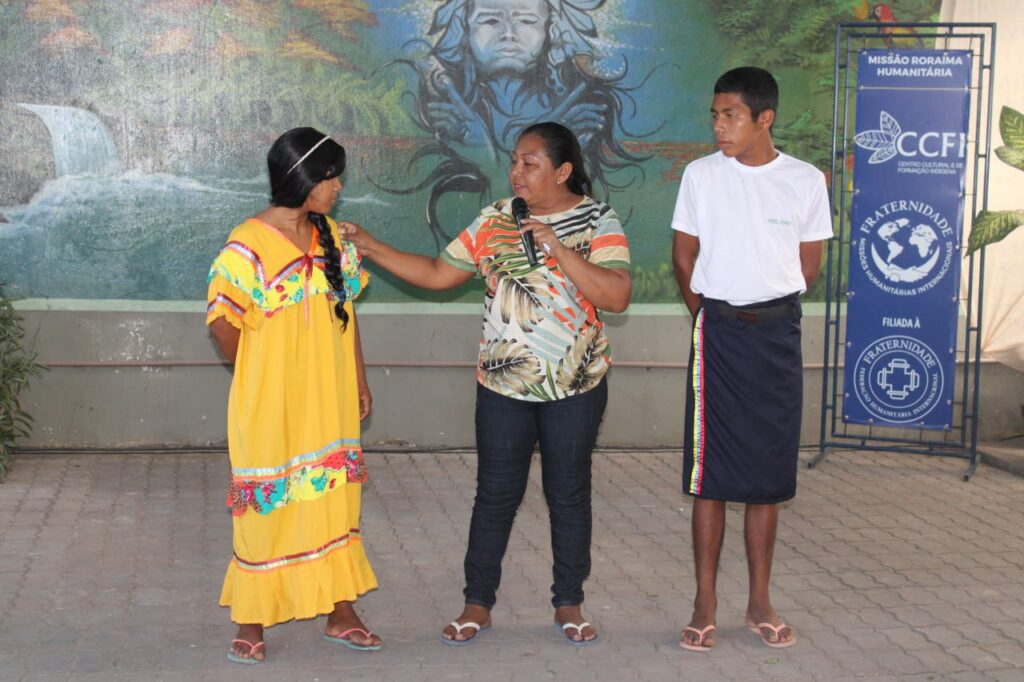
In the CCFI there is a special effort to encourage the appreciation and the recovery of the mother tongue, especially among the Kariña people. As Juan Diego emphasizes, “one of the greatest challenges faced by the indigenous communities is the gradual loss of the language, which has already affected several generations.” For this reason, according to him, the intercultural fairs that are promoted are fundamental moments for strengthening this linguistic link, with recitals, skits and dramatizations carried out in the Kariña language itself. Besides that, “the CCFI is intensely active in rescuing traditional knowledge, such as the use of typical costumes, expanding the cultural preservation of not only the Kariña people, but that of other indigenous communities also”, adds Juan Diego.
A Possible Future
The building of a possible future for the Kariña people goes through the preservation and appreciation of the culture as the foundation of their identity. For Dailimar, “keeping the traditions alive means to guarantee the continuity of ancestral knowledge and foster a respect and appreciation for the Kariña history”, and in this way, new generations will be able to recognize their roots and strengthen their feeling of belonging.
Luis Tempo highlights that the guarantee of territorial and cultural rights is essential so that the Kariña people are able to project their future with autonomy and dignity. He sees a tomorrow marked by the recognition of the Kariña people, of their culture and traditions, allied with the implementation of a differentiated education that values that knowledge and assures a strengthening of the indigenous identity.
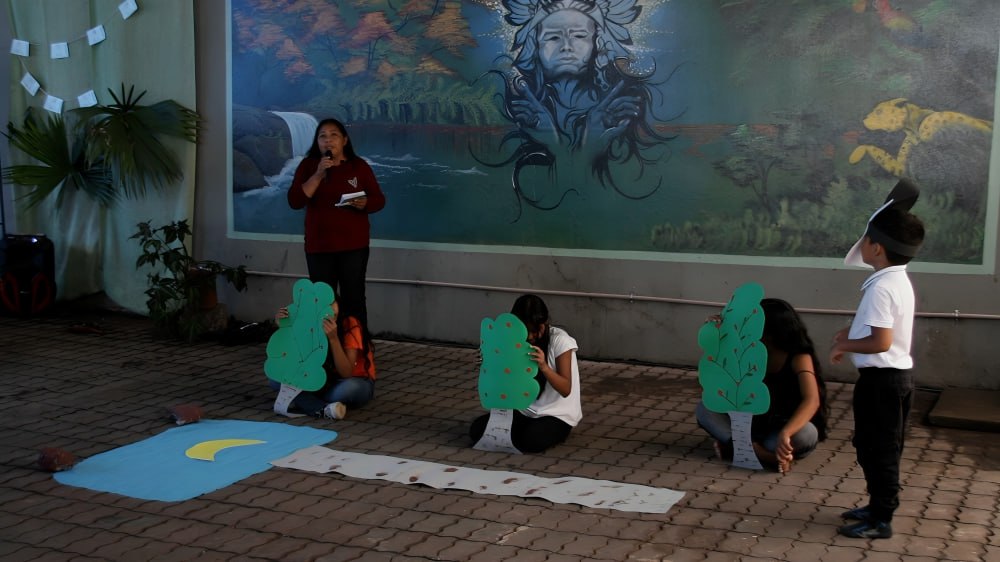
The matriarch Diolimar emphasizes that maintaining the culture depends on the engagement of the young people, and that engagement can already be witnessed through the group of young people that has already been promoting the dance, the rituals and other Kariña traditions. Her dream is that Brazil should come to know and respect those cultural manifestations, disseminated by different states, and which will guarantee that the Kariña cultural remain alive, vibrant and present for future generations.





